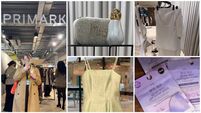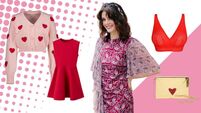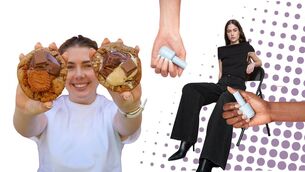CREATE is celebrating ten years of local design at Brown Thomas

Bag by My Name is Ted, €595
Ten years ago, Shelly Corkery asked herself where all the Irish designers were.
As fashion director at department store Brown Thomas, she took it upon herself to find some names who could appear in the Dublin flagship on Grafton Street to represent Irish design on an international level. She enlisted the retail consultant, Eddie Shanahan to assist her in the search. Soon after, CREATE launched.







